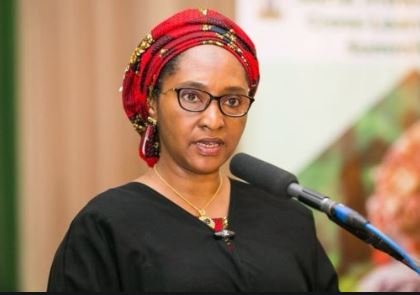The federal government yesterday said it has removed over 25000 ghost workers from the payroll of the ministries, departments and agencies of government under the government initiated whistleblower policy. The government however did not give details on how, and the specific ministries that were involved in the fraudulent exercise.
The whistleblower policy is the result of the current administration’s resolve to vigorously fight corruption in the country. The policy is designed to strengthen the fight against financial crimes and corruption by increasing exposure of financial crimes and rewarding whistle blowers.
Minister of finance, budget and national planning, Mrs. Zainab Ahmed said the federal government is committed to drive corruption down the line and entrench a culture of transparency and openness. The minister made the remarks at the national conference on whistleblower policy in Nigeria. The event was held in Abuja.
The federal government had constituted a committee with representatives from anti-graft and security agencies charred by a representative of the ministry of justice to draft a whistleblower Bill.
The draft Bill was subjected to a validation exercise with stakeholders including non-state actors like MacArthrur Foundation, Afrimill and others.
The minister said “we hope to develop a robust draft bill for the consideration and approval of FEC and eventually the National Assembly.”
Meanwhile, in a bid to broaden and enhance the efficacy of the policy, Vice President Yemi Osinbajo said there should be an expansion of the scope of the current framework to include issues of public safety, security, gross mismanagement of the rights of people, and waste of resources, among others.
Prof Osinbajo said there are a whole range of issues that may not endanger public finance directly but may constitute public safety or security risks, saying reporting such may save lives and or property. “The scope may then cover such matters as a violation of law, gross mismanagement of the rights of people and waste of public resources, or acts inimical to public health or safety.”
Speaking on the need to enhance the whistleblower policy, the Vice President said “although, some progress have been achieved through this policy, especially at the Federal Level – with recoveries, prosecutions, and convictions; it is essential that the policy operates widely in States and Local Governments as the tiers closest to the people and overseers of about half of the nation’s revenues.” He said: “Exposing corruption is for the good of our nation.
He said the goal is to harness the huge potential of the people to deliver on their moral obligation to report cases of corruption within their immediate environments.”
Calling for a legislative backing for the policy, Prof. Osinbajo said an Act of the National Assembly to back the policy is a necessity. “Such a law should also provide for comprehensive protection of whistleblowers, including against reprisals from their employers and those whose activities they expose.
“These may include witness protection type provisions and this will give the whistleblower some protection where they may have to appear in court,” the Vice President explained.
Speaker of the House of Representatives, Femi Gbajabiamila pledged to back any legislative draft on anti-corruption, especially on whistleblower that maybe presented to the house for legislation. He said the fight against corruption needs to be strengthened.


